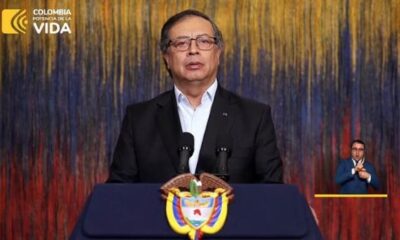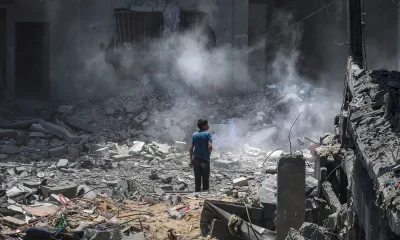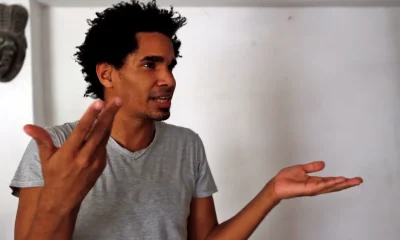International
Cuban women, finally, in boxing ring
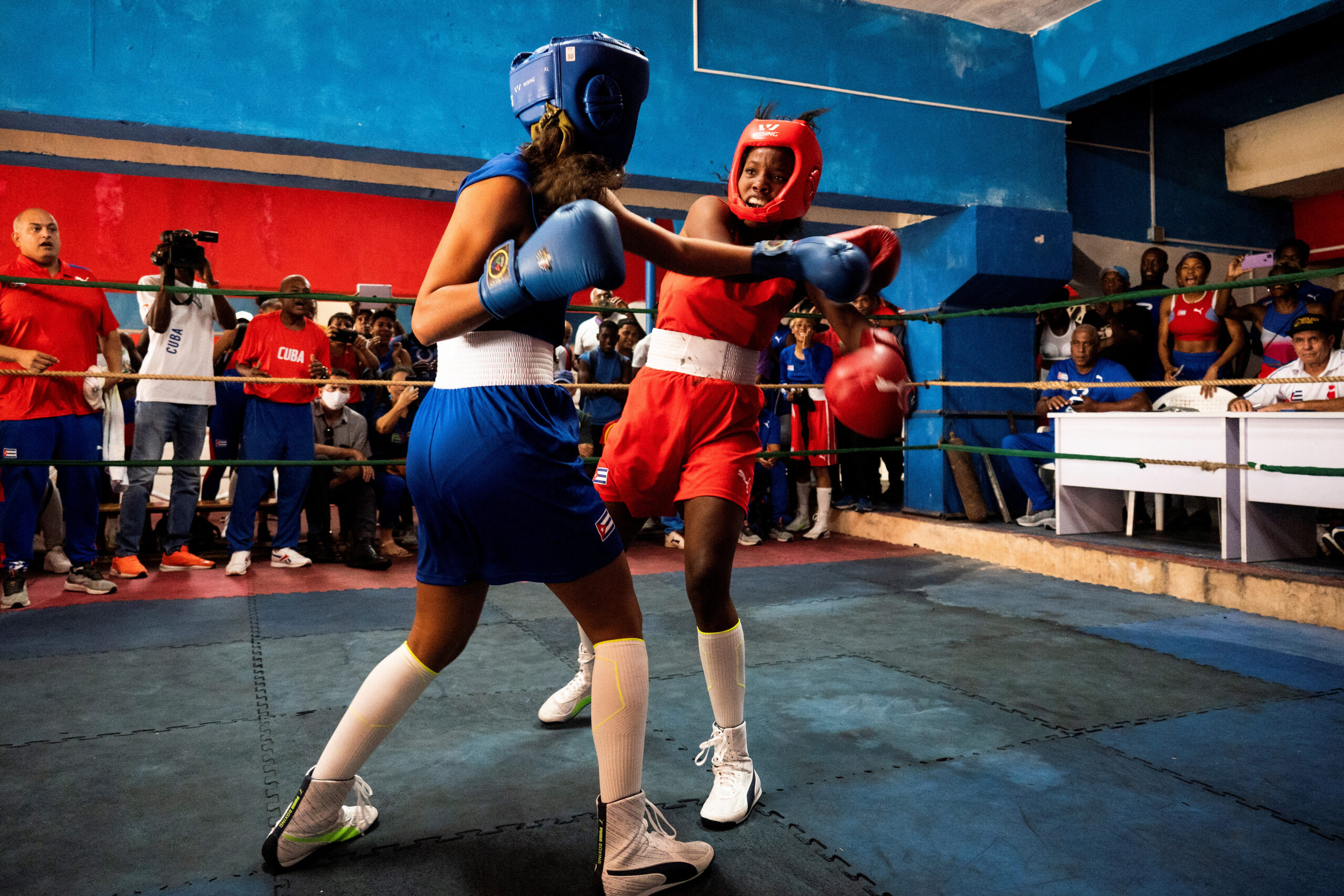
| By AFP | Carlos Batista |
With a strong right jab to the face of her opponent, Elianni Garcia Polledo on Saturday won the first official women’s boxing match in sports-crazed Cuba.
“It is a historic result for Cuban boxing,” said one of the judges over the loudspeaker when announcing the “unanimous” decision for Garcia, from Havana province, over Reynabell Grant, from Guantanamo. Both are 27.
Dressed in red and shorter, Garcia tirelessly landed powerful blows with both hands that hit her opponent’s face, shoulders and abdomen several times.
That is, until the decisive blow, in the third round, left Grant down for the count and ultimately decided the fight.
It was the beginning of the first official women’s boxing program, something that many women and authorities of this sport expected in Cuba, an island that boasts 80 world boxing titles and 41 Olympic gold medals in boxing, including the legendary Teofilo Stevenson.
Finally, Cuban sports authorities gave a green light for women on December 5.
“This is a moment that we have been preparing for, for several years,” Alberto Puig de la Barca, president of the Cuban Boxing Federation, told AFP.
In the end, there will be 12 females — two for each division, which will be the preselection of the team for the Central American games in San Salvador, in August 2023 and other international events.
“She (García) just kept working on the offensive, looking to shorten the distance,” Raul Fernandez, 55, one of her trainers, told AFP at the end of the fight.
Garcia, who says she came to boxing from athletics, now looks optimistically at her future in boxing.
‘Bittersweet’
“I have a bittersweet feeling, because I cannot represent Cuba,” Namibia Flores told AFP. At 46, she is six years older than the age maximum in this sport.
But she can be there outside the ring: “Right now, I am the only trainer and I was one of the first girls who is training since 2006,” she says.
At 70 years old and already retired, Nardo Mestre could not miss this moment.
He was the trainer of Flores and many other girls for nearly 30 years, when, he remembers, Alcides Sagarra, the father of the Cuban Boxing School, arrived one afternoon suggesting the need to train women.
So “it was never approved. Now it was authorized and I am already retired, but proud because five of the girls that I trained are here today,” he told AFP.
Cuba has had female representation in all sports, including weightlifting and wrestling, since 2006, but the last bastion of “sports machismo” long was insurmountable: letting women box.
Women’s boxing is now practiced in 187 of the 202 member countries of the International Boxing Association (IBA).
Women made their debut at the London 2012 Olympic Games, with three divisions.
It has yet to be determined if Cuba could be represented by its women in the next Boxing World Cup in Tashkent, capital of Uzbekistan, next May.
International
Paraguay summons Brazilian ambassador over Itaipú espionage scandal
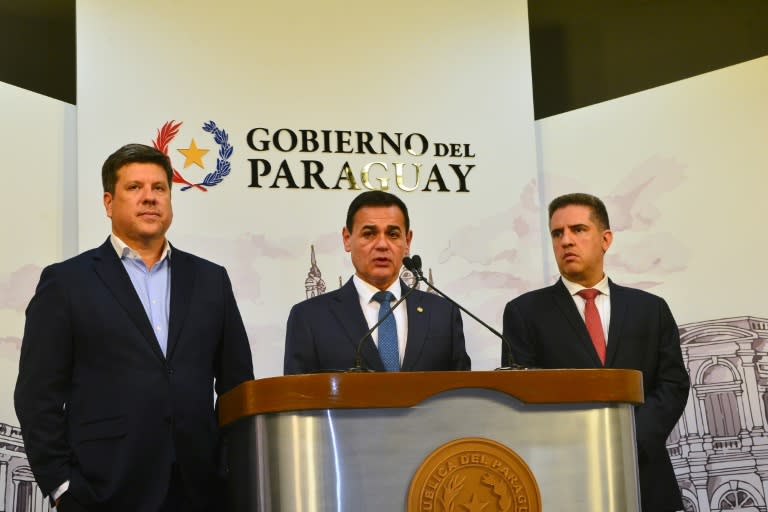
Paraguay summoned the Brazilian ambassador in Asunción on Tuesday to demand “explanations” and called its own representative in Brasília for consultations following Brazil’s acknowledgment of an espionage operation. The Brazilian government, led by President Luiz Inácio Lula da Silva, attributed the operation to the previous administration.
The surveillance effort aimed to uncover Paraguay’s position in now-suspended negotiations with Brazil regarding the pricing of electricity from the binational Itaipú hydroelectric plant, according to reports in the Brazilian press.
The Brazilian government “categorically denied any involvement in the intelligence operation,” stating in a Foreign Ministry communiqué on Monday that the espionage was carried out under former President Jair Bolsonaro’s administration (2019-2023).
“The operation was authorized by the previous government in June 2022 and was annulled by the interim director of the (state intelligence agency) ABIN on March 27, 2023, as soon as the current administration became aware of it,” Brazil’s government asserted.
Paraguay’s Foreign Minister Rubén Ramírez announced that Brazilian Ambassador José Antonio Marcondes de Carvalho was summoned “to provide detailed explanations” regarding the operation. Additionally, Paraguay recalled its diplomatic representative in Brasília “to report on aspects related to the intelligence activity conducted by Brazil regarding Paraguay’s government affairs.”
International
Elon Musk to step down as government advisor, per Trump insiders
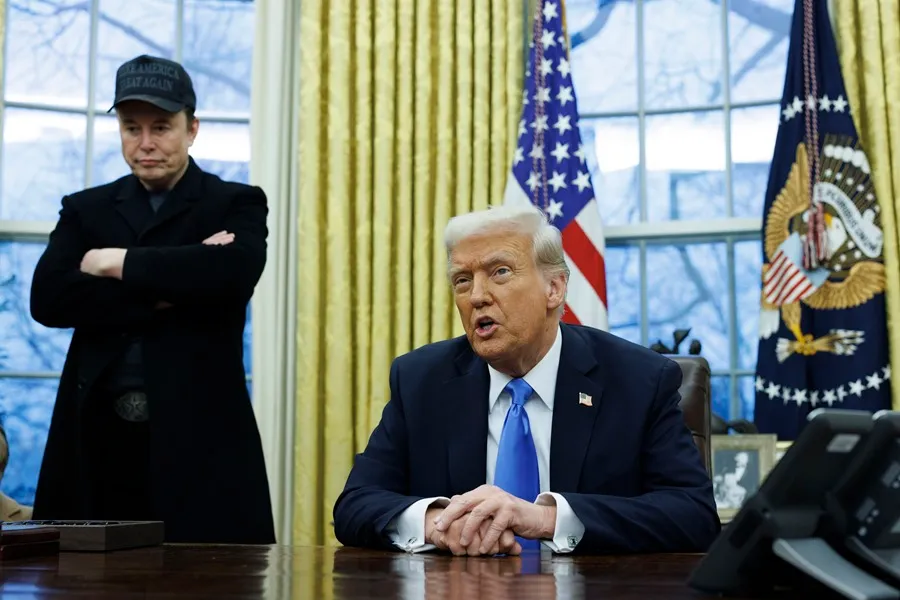
President Donald Trump has informed his inner circle that Elon Musk will be stepping down from his role as a government advisor, according to a report by Politico today.
Citing three individuals close to Trump, Politico states that the president is pleased with Musk’s leadership at the Department of Government Efficiency (DOGE), where he has implemented significant budget cuts. However, both have agreed that it is time for Musk to return to his businesses and support Trump from a different position outside the government.
A senior administration official told Politico that Musk will likely maintain an informal advisory role and continue to be an occasional visitor to the White House. Another source warned that anyone thinking Musk will completely disappear from Trump’s circle is “deluding themselves.”
According to the sources, this transition is expected to coincide with the end of Musk’s tenure as a “special government employee,” a temporary status that exempts him from certain ethics and conflict-of-interest regulations. This 130-day period is set to expire in late May or early June.
International
Milei vows to make Argentina so strong that Falkland Islanders “choose” to join

Argentine President Javier Milei reaffirmed his country’s claim over the Falkland Islands (known as the Islas Malvinas in Argentina) and praised the role of the nation’s armed forces during a ceremony marking the “Veterans and Fallen Soldiers of the Malvinas War Day,” commemorating 43 years since the 1982 conflict with the United Kingdom.
Argentina continues to assert sovereignty over the islands, arguing that Britain unlawfully seized them in 1833.
“If sovereignty over the Malvinas is the issue, we have always made it clear that the most important vote is the one cast with one’s feet. We hope that one day, the Malvinas residents will choose to vote with their feet and join us,” Milei stated.
“That is why we aim to become a global power—so much so that they would prefer to be Argentine, making deterrence or persuasion unnecessary. This is why we have embarked on a path of liberation, working to make Argentina the freest country in the world and once again the nation with the highest GDP per capita on the planet,” he added.
-

 Central America3 days ago
Central America3 days agoU.S. Homeland Security Secretary urges Mexico to strengthen Guatemala border
-

 Central America3 days ago
Central America3 days agoPanama grants Martinelli 72-hour extension to travel to Nicaragua
-

 International1 day ago
International1 day agoParaguay summons Brazilian ambassador over Itaipú espionage scandal
-

 Central America4 days ago
Central America4 days agoPanama police clarifies that Interpol alert for Martinelli is still pending
-

 International3 days ago
International3 days agoTrump urges Putin to reach peace deal
-

 International4 days ago
International4 days agoDeportation flight lands in Venezuela; government denies criminal gang links
-

 Sports1 day ago
Sports1 day agoFilipe Luis debuts as coach in Copa Libertadores with Flamengo
-

 Central America1 day ago
Central America1 day agoGuatemalan police officer killed in mob riots over baby kidnapping
-

 International1 day ago
International1 day agoElon Musk to step down as government advisor, per Trump insiders
-

 Sports1 day ago
Sports1 day agoVenezuela investigates 18 baseball players seeking asylum in Spain
-

 International1 day ago
International1 day agoMilei vows to make Argentina so strong that Falkland Islanders “choose” to join
-

 International1 day ago
International1 day agoICE agent’s arrest of suspect sparks controversy in Boston
-

 International1 day ago
International1 day agoÓscar Arias: Trump’s trade policies are a step backward














